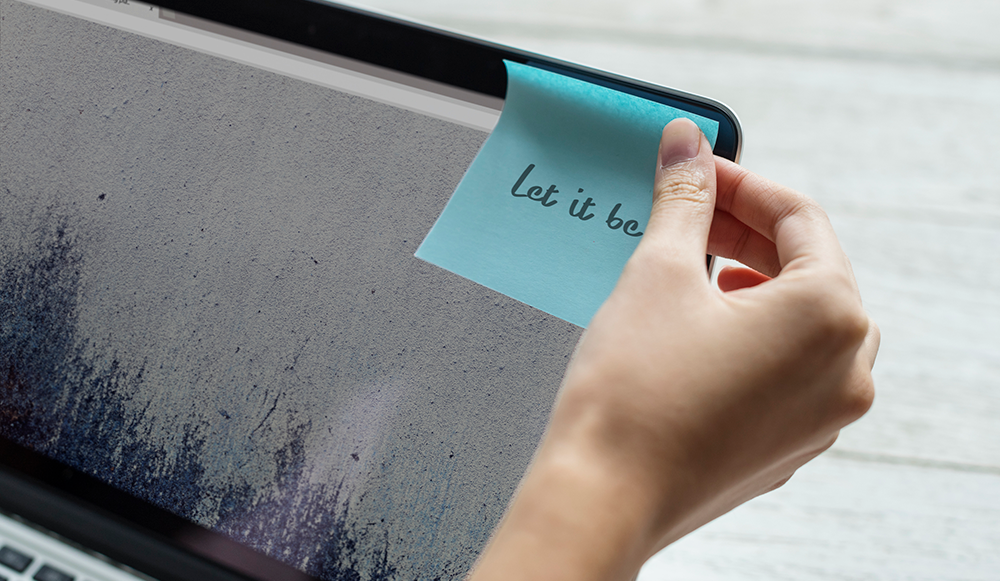5 Easy Ways to Blow Off Daily Steam in a High-Stress Job

Who hasn’t, in a moment of stress, had an impulse to hit a printer a là the infamous scene in the 1999 flick Office Space? On-the-job stress has been known to make people do much worse things, after all — things that are more dangerous and unaccompanied by a Geto Boys soundtrack.
The reality is work stress is more the norm than not. A 2013 survey found that 83 percent of Americans were stressed out by their jobs. In an earlier report, 25 percent of Americans said work stress was their No. 1 stressor in life.
If those statistics describe you, you may be at risk of developing serious health problems. A 2015 study from Harvard and Stanford Business Schools found that work-related illnesses kill more people each year than diabetes, Alzheimer’s, or influenza.
Daily self-care in the workplace should be more than a buzzword, but taking care of oneself while balancing tight deadlines and tough demands may not always seem manageable. On that note, here are five easy ways to blow off steam in a high-stress job so that you don’t have to beat the printer to a pulp or watch your health go up in flames:
1. Dress as Comfortably as Possible
What you wear can impact how you feel. Those three-inch heels or tightly hugging pair of skinny pants can amp up your anxiety. Looking professional doesn’t mean you have to be uncomfortable for eight hours of your day. Invest in some good-quality, comfy shoes, and wear clothes that, in addition to following your employer’s guidelines for attire, are also easy to wear and don’t add to your stress.
2. Stay Hydrated
Drinking plenty of water throughout the day isn good for your physical health, and it can also improve your mood, according to a 2015 study. Who doesn’t need a lift when feeling stressed out?
When you’re under the gun to finish a project that was due 10 minutes ago, avoid the temptation to reach for another cup of coffee. Grab your water bottle instead.
3. Make the Most of Your Breaks
It may sound counterintuitive, but when you’re under pressure, it’s that much more important to take breaks during the day. A break should really be a break, not just another rushed effort to get something else done on your personal to-do list. Instead, use the time to do something that actually replenishes your spirit. For many people, this might mean getting outdoors with a book or taking a brisk walk in the fresh air. For others, it may mean venting with a good friend or sweating off the stress at a nearby gym. Keep it simple and feasible. The only requirement is that it helps you relax and reboot.
4. Take Mini Breathers (Literally)
A 2014 study found that just a few minutes of mindfulness meditation — a practice of non-judgmental awareness of one’s breath and the present moment — can reduce the body’s stress response. Even just one minute of quiet attentiveness to the involuntary miracle of one’s breath can go a long way to achieving greater calm and focus. Often, I encourage clients to pick a word or visualize an image as they breathe (a peaceful scene from nature, someone you feel compassion for, etc.).
Try it yourself: Set the timer on your phone for two minutes, sit in a comfortable position, plant both feet firmly on the ground, and straighten your back. Breathe slowly in to the count of four, and then out to the count of four. As you exhale, you might mentally say to yourself, “relax.” Notice how you feel afterwards.
5. Unload Your Work-Related Anxieties on Paper
Research shows that taking just a few minutes a day to write about your stress-induced feelings may reduce anxiety, freeing up the brain for cognitive tasks. When you’re working on a high-stress project, try taking 10 minutes to write down what you’re feeling. Is it anxiety? If so, what’s behind the anxiety? Is it fear of looking stupid or fear of losing your job? Jot it all down. Getting those feelings out into the open — even if just in a private journal entry — is a way to identify and release anxieties, as well as a way to process and reframe what is most stressing you out.
—
A high-stress job doesn’t have to boss you and your health around, thanks to these five quick strategies for daily self-care in the workplace. With these tools in your toolbox, self-care will be more manageable — and your less-stressed self will thank you.
Anna Ciulla is the vice president of clinical and medical services at Beach House Center for Recovery.

